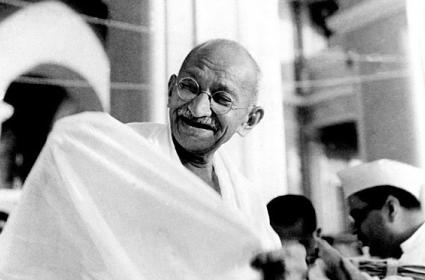Where Was Gandhi On India's Independence Day?

As India celebrates its 74th year of Independence from the oppressive British Raj, it is imperative that we go back to history. One such interesting story is that related to Mahatma Gandhi. Did you know where was Gandhi when India attained freedom on August 15, 1947?
In his book, ‘Gandhi Through Western Eyes’, Horace Alexander who was closely associated with the freedom fighter said that Gandhi had not taken part in the celebrations that night and was not in Delhi.
“For what Gandhi did on that day was one of the most extraordinary happenings in his entire life,” Alexander had said.
Gandhi was in Calcutta then in the night of August 15, 1947 for peace negotiations in the the city as well as Bengal. He wrote in his book that Gandhi was in Bihar a few days before the Independence day and then headed for Bengal as communal tensions flared up in both the states, months before India got its independence.
A part of Bengal was going to be separated to form East Pakistan.
“In late 1946, in the Noakhali district of East Bengal, Muslims attacked their Hindu neighbours and burnt their houses. Gandhi immediately went there and did his utmost to bring the two communities together again. He tried especially to put courage into the hearts of the Hindus, so that they should return to their villages. But almost immediately after this, in the neighbouring state of Bihar, a large minority of Muslims was even more brutally attacked by their Hindu neighbours.
After spending weeks, walking on foot from village to village in the Noakhali district, Gandhi went to Bihar, and did all that he could to give courage to the Muslims and a change of heart to the Hindus. But he had promised the Noakhali Hindus that on this fateful day, when freedom and partition came, he would be with the frightened Hindus, who would find themselves living in the Muslim State of Pakistan,” Alexander wrote.
On August 14, Muslims from Calcutta visited him in Sodepur Ashram and insisted him not to go to Bengal.
Gandhi had later met a Muslim man named Shaheed Suhrawardy who had become the chief minister of undivided Bengal. On August 13, few men realised that Suhrawardy was not present at the regular evening prayers at Gandhi's.
After Gandhi ended his prayers he was writing some letters after closing the shutters. But the noises continued. Gandhi then threw open the shutters and started speaking in a low voice.
Gandhi later brought Suhrawardy forward when a young man shouted at him, “Do you accept the blame for the great Calcutta killing of last year?” “Yes,” replied Suhrawardy. "I do accept that responsibility. I am ashamed of it."
In that one moment Suhrawardy won them over, Gandhi said, “There is nothing more effective than public confession for clearing the atmosphere.”
On the 15th, Gandhi was only concerned that the people of India should put first things first and not turn the day into a mere jollification. Those who were with him would join him in prayers and fasting.
“At every decisive moment in the national life, the appropriate thing was to turn first to God, in thanksgiving that he had brought the country this far on the road, and to pray for the courage and wisdom to continue in the paths of justice and right action.
Fasting was also appropriate, as a reminder that the ‘semi-starved millions’ in the villages could not celebrate by eating more food on that day, however much they might wish to. So, fasting was a reminder that the primary purpose of freedom from foreign rule was to over-come the country’s vast poverty,” Alexander wrote.
Gandhi wanted to remember the poor and the hungry of the first day of the freedom.
It must be noted that violence was not reported from Bengal on that day or next few days.
















